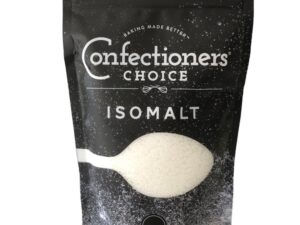Description
Aspartame: A Sweetener Under the Microscope
Aspartame, a widely used artificial sweetener, has been a subject of both intense scrutiny and widespread consumption for decades. Marketed under various brand names like NutraSweet and Equal, it’s a common ingredient in diet sodas, sugar-free gums, and a plethora of other low-calorie food and beverage products. But despite its prevalence, questions surrounding its safety and potential health effects continue to swirl, fueling ongoing debate and research.
What is Aspartame?
Aspartame is a non-saccharide artificial sweeter, meaning it doesn’t contain sugar. Chemically, it’s the methyl ester of the dipeptide L-aspartyl-L-phenylalanine. In simpler terms, it’s made from two naturally occurring amino acids: aspartic acid and phenylalanine. What makes it so appealing is its intense sweetness – approximately 200 times sweeter than sugar, allowing manufacturers to use significantly smaller amounts to achieve desired sweetness levels. This translates to fewer calories, making it a popular choice for individuals managing their weight or blood sugar.
Where You’ll Find It:
Aspartame is ubiquitous in the food and beverage industry. You’ll commonly find it in:
- Diet sodas and other sugar-free beverages: A cornerstone ingredient in the diet soda market.
- Sugar-free gum and candies: Providing sweetness without the added sugar.
- Yogurts and desserts: Often used to reduce the sugar content of these products.
- Tabletop sweeteners: Packets of NutraSweet or Equal are often used as sugar substitutes.
- Pharmaceuticals: Certain medications, particularly chewable tablets, may contain aspartame.
The Safety Debate:
The safety of aspartame has been a long-standing topic of discussion and research. Numerous regulatory bodies, including the Food and Drug Administration (FDA) in the United States and the European Food Safety Authority (EFSA), have reviewed extensive scientific data on aspartame and have concluded that it is safe for consumption within established Acceptable Daily Intake (ADI) levels.
The ADI, established by regulatory agencies, represents the maximum amount of a substance that can be consumed daily over a lifetime without posing a significant risk. For aspartame, this is typically around 50 milligrams per kilogram of body weight per day. To put that in perspective, a person weighing 150 pounds (68 kilograms) would need to consume roughly 17 cans of diet soda containing the typical amount of aspartame to reach the ADI.
Addressing Common Concerns:
Despite regulatory approval, concerns about potential health effects of aspartame persist. Some of the most common concerns include:
- Cancer: Early studies raised concerns about a potential link between aspartame and cancer, particularly in rats. However, subsequent and more comprehensive research, including large-scale human studies, has not found consistent evidence to support this claim.
- Neurological Effects: Some individuals report experiencing headaches, dizziness, and other neurological symptoms after consuming aspartame. While anecdotal reports exist, controlled studies have yielded mixed results, and a definitive cause-and-effect relationship remains unproven for the general population.
- Phenylketonuria (PKU): Individuals with PKU, a rare genetic disorder, must avoid aspartame. PKU prevents the proper metabolism of phenylalanine, one of the amino acids in aspartame. Accumulation of phenylalanine can lead to serious health problems in people with PKU. Products containing aspartame are clearly labeled with a warning for individuals with PKU.
The Bottom Line:
The scientific consensus, based on extensive research and evaluations by regulatory agencies, is that aspartame is safe for consumption within the established ADI limits for most individuals. However, like with any food or ingredient, individual sensitivities can exist.
For individuals with PKU, aspartame should be strictly avoided. For others concerned about potential health effects, consulting with a healthcare professional or registered dietitian is recommended. They can provide personalized advice based on individual health history and concerns.
Ultimately, informed decisions about aspartame consumption should be based on a balanced understanding of the available scientific evidence, personal health considerations, and individual preferences. While ongoing research continues to refine our understanding of aspartame, it remains a widely used and regulated artificial sweetener enjoyed by millions worldwide.













Reviews
There are no reviews yet.